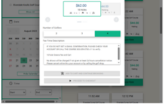There may be no more controversial topic in the golf course operation than the licensing of a POS and Tee System via barter – providing the software vendor unfettered access up to three times per day. The National Golf Course Owners Association and the PGA of America have long opposed barter for software licensing and issued many joint publications as to the peril of this practice.
The case for barter is long-standing. Before the formation of the monetary financial system centuries ago, barter was the principal of economic trade.
Even today, barter is prevalent, exchanging a few green fees for advertising, legal counsel, accounting services, or receiving a discount on goods or merchandise. To the extent that a business enterprise has excess capacity, exchanging for goods or services that has value to the owner or a commodity that they won’t use is logical.
So what is wrong is barter?
In the golf industry, extensive fully-featured golf software is available for $8,000 to $10,000 annually.
In 2022, a client had 2,270 “Hot Deal” green fees and carts sold (bartered slots allocated to GolfNow, representing 10.52% of the total rounds played. Though the published green fee is $32, if GolfNow sold those tee times for the average rate received by the golf course, $19.29, they would have theoretically generated $43,798 for a service available for less than $10,000.
The proponents of barters would argue that the above calculation is an oversimplification of the issue and doesn’t represent the fair value the Course received in marketing services from GolfNow, the convenience of creating a database of customers, or the value of the GolfNow brand as the default site public golfers use to reserve a tee time.
The thought is, “If you do not use their platform, your course will lose visibility, leading to a decreased market share of rounds played.”
But the issue is more complicated than that.
By GolfNow posting a price below the rate charged by the golf course, it defines the value of the experience they will receive in the consumer’s mind. Why would I reserve the 11:00 a.m. tee time from the Course for $32 if I can buy the 11:40 tee time for $20?
The golfer that uses GolfNow is not loyal to any course and is merely seeking a tee time at the lowest price that is most convenient to their schedule.
While the establishment by the contract of “floor pricing” would prevent the degradation of perceived value, we were informed that while floor pricing was in effect during part of the past fiscal year, the General Manager could not confirm that contract provisions were still in place during this Golf Study. The question has been asked by them and not answered.
Why?
Transparency Lacking–- Special Considerations
We were informed by several management company leaders and industry executives that third-party management companies receive special consideration from GolfNow.
The following was represented to us by the third-party management company during this Golf Study:
- We do not receive any commissions for tee times sold.
- Each course has cash or various trade options available to them for the use of the G1 POS and software that is reviewed annually.
- There is a price floor, and they are not involved in determining when trade times are sold. They are not sold during peak times when the rates are highest.
- The course benefits from their contract terms, which are considerably better than most stand-alone properties can do independently.
- There is dedicated support from GolfNow and a team of revenue managers from the corporate side that manages this relationship.
- They can provide a detailed list of every tee sold, including trade rounds.
Statements like the above give us a concern.
A client does not have access to the books of the management company to confirm or deny whether financial considerations are received. It was stated to us by other industry leaders that while GolfNow doesn’t use the term “Commission”, there is some fee paid to Troon and several of the multi-course operators based on revenues generated from Contractual agreements.
The cash price to use G1 POS is often quoted to exceed $100,000, which is ludicrous.
While the establishment by the contract of “floor pricing” would prevent the degradation of perceived value, we were informed that while floor pricing was in effect during part of the past fiscal year, the General Managers could not confirm that contract provisions were still in place during this Golf Study.
The trade tee times are usually sold at 11:50 and 12:10 on the weekend, considered prime tee times.
There is no evidence that the client golf courses benefit from contract terms they might achieve without third-party representation.
To illustrate floor pricing, we know a management company that oversees a multi-course municipality in which the floor pricing was set at 80% of the rack rate. A floor price of 50% is not reasonable.
Regarding dedicated support, management companies are very skilled in revenue management, and the services of GolfNow are not needed.
Despite the issues raised above, in our professional opinion, perhaps the most critical issue is the substandard quality of the G1 software offered by GolfNow compared to that provided by Club Caddie, Club Prophet, ForeUP, Lightspeed, or Teesnap.
Thus, transparency is a fundamental ethical principle on which municipal governments operate.
As such, we believe the use of GolfNow by a third-party management company should be a disqualifier in the RFP selection process to manage a municipal golf course unless the special considerations received by the management company are disclosed to the municipality via providing a copy of their contract with GolfNow to ensure full disclosure.
